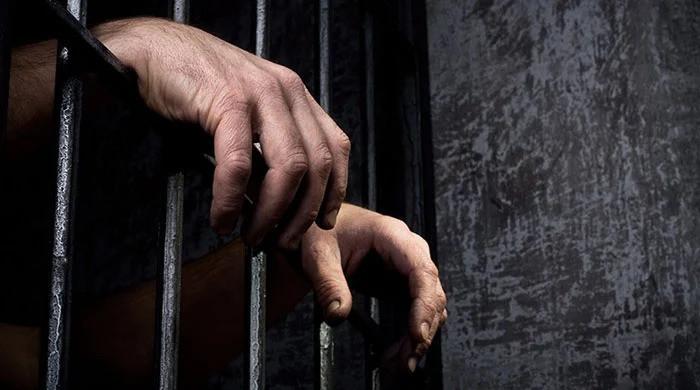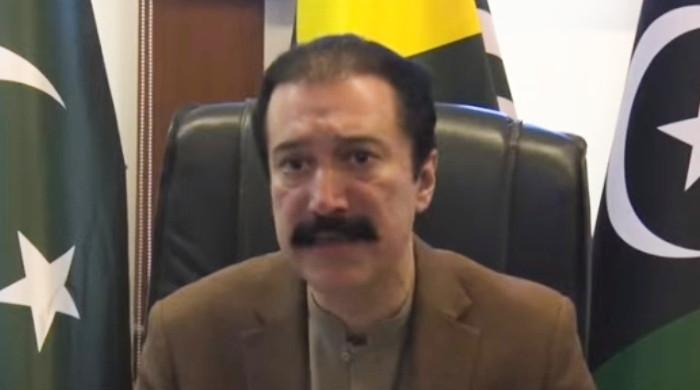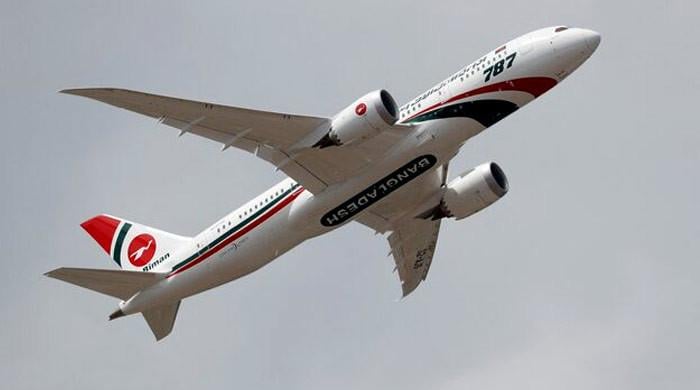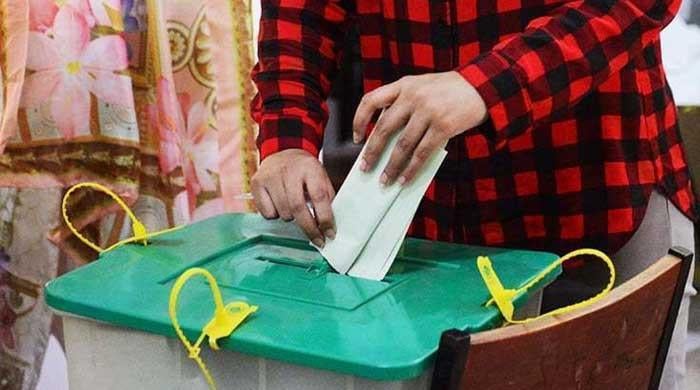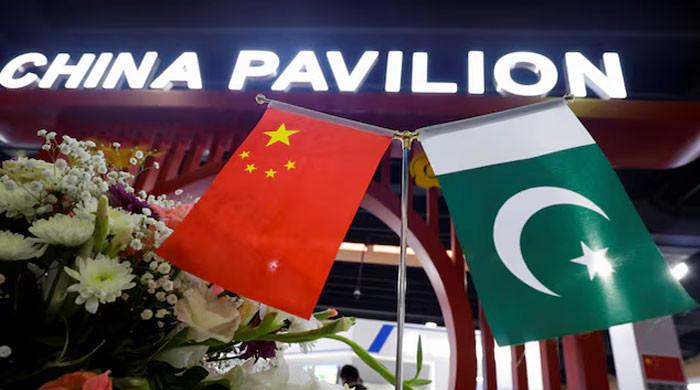Pakistan again calls for int’l engagement with Afghanistan to 'avoid economic collapse’
We believe Taliban are interested in engagement as they seek international acceptance, says FM Qureshi at Troika Plus meeting
November 11, 2021
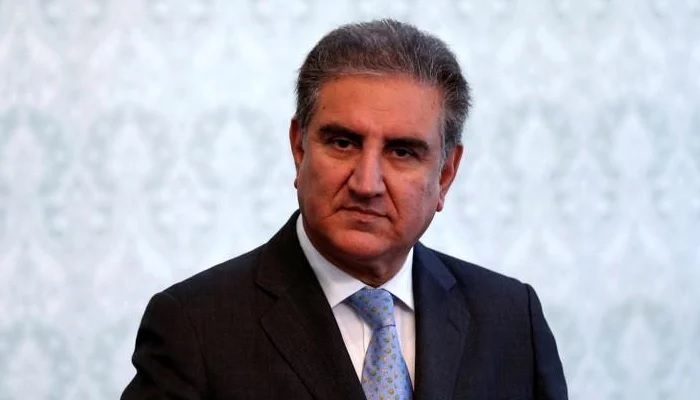
- Engagement with Afghanistan should be enhanced for multiple reasons, says FM Shah Mahmood Qureshi at Troika Plus meeting.
- Special Representatives of China, Pakistan, Russia and US, and visiting delegation of interim govt of Afghanistan led by Acting FM Amir Khan Muttaqi attend meeting.
- Qureshi reaffirms resolve of Prime Minister Imran Khan to help Afghanistan on its path towards peace, progress and prosperity.
ISLAMABAD: To avert economic collapse and civil war in Afghanistan, it is crucial for the international community to "avoid repeating mistakes of the past" and pursue a positive engagement, says Foreign Minister Shah Mahmood Qureshi.
Addressing the opening session of the ninth meeting of Troika Plus, the foreign minister said engagement with Afghanistan is important as nobody wished to see a relapse into civil war and an economic collapse to spur instability.
“Everyone wants terrorist elements operating inside Afghanistan to be tackled effectively and we all want to prevent a new refugee crisis,” he said.
The meeting, held at the Ministry of Foreign Affairs, was attended by Special Representatives of China, Pakistan, Russia and the United States, and the visiting delegation of the interim government of Afghanistan led by Acting Foreign Minister Amir Khan Muttaqi.
FM Qureshi said the Troika Plus meeting reflected the common desire to see a “peaceful, stable, unified, sovereign and prosperous Afghanistan”.
Qureshi expressed confidence that Troika Plus’s engagement with the new Afghan government would help consolidate peace and stability, promote sustainable economic development and help constrict space for terrorist outfits operating from and within Afghanistan.
He mentioned that today, Afghanistan stands at the brink of an economic collapse and with international funding dried up, it had become difficult to pay even salaries, let alone pursue development projects.
He said the common man is reeling under the effects of a severe drought, adding that any further downward slide would severely limit the new administration’s capacity to run the government.
“It is, therefore, imperative for the international community to buttress provision of humanitarian assistance on an urgent basis,” he stressed, and added that health, education and municipal services required urgent attention.
The foreign minister said enabling Afghanistan to access its frozen funds would dovetail into the efforts to regenerate economic activities and move the Afghan economy towards stability and sustainability.
Similarly, he said, the UN and its agencies must be urged to find ways to reach out to the common Afghan and help stabilise the situation.
Qureshi said being an immediate neighbour, Pakistan had a direct stake in Afghanistan’s peace and stability
With a shared heritage and history, we consider every ethnic community of Afghanistan important in the final destiny of the country, he said.
“Located next door, we have borne the brunt of four decades of conflict and instability in the shape of refugees, drugs and terrorism,” he said. “We see the current situation as an opportunity to end the prolonged conflict”.
He mentioned that Pakistan had already taken a number of steps to facilitate the common man in Afghanistan. These include a waiver of customs duties on perishable food items to support farmers in Afghanistan, provision of humanitarian assistance, facilitating pedestrian movement, keeping the border open during COVID-19 and visa on arrival for medical cases.
He expressed gratitude to the neighbours of Afghanistan for supporting Pakistan’s call for a regional platform to discuss common concerns and opportunities. The two meetings, he said, yielded substantive and forward looking outcome documents.
He recalled that his visit to Kabul last month helped understand the new Afghan government’s expectations from the international community.
“It also provided us the opportunity to share our assessment with the Taliban leadership and highlight the international community’s expectations of them,” he said.
“We believe Taliban are interested in engagement, as they seek international acceptance and support,” he said.
Qureshi reaffirmed the resolve of Prime Minister Imran Khan to help Afghanistan on its path towards peace, progress and prosperity.
Later in the day, the Ministry of Foreign Affairs issued a detailed statement on the outcome of the meeting:
1. Expressed deep concern regarding the severe humanitarian and economic situation in Afghanistan and reiterated unwavering support for the people of Afghanistan.
2. Recalled the relevant Afghan – related UNSC Resolutions, including respect for the sovereignty, independence and territorial integrity of Afghanistan that is free of terrorism and drug related crime, and that contributes to regional stability and connectivity.
3. Welcomed the Taliban’s continued commitment to allow for the safe passage of all who wish to travel to and from Afghanistan and encouraged rapid progress, with the onset of winter, on arrangements to establish airports countrywide that can accept commercial air traffic, which are essential to enable the uninterrupted flow of humanitarian assistance.
4. Called on the Taliban to work with fellow Afghans to take steps to form an inclusive and representative government that respects the rights of all Afghans and provides for the equal rights of women and girls to participate in all aspects of Afghan society.
5. Agreed to continue practical engagement with the Taliban to encourage the implementation of moderate and prudent policies that can help achieve a stable and prosperous Afghanistan as soon as possible.
6. Emphasised that access to education for women and girls at all levels is an international obligation and encouraged the Taliban to accelerate efforts to provide for full and equal access to education countrywide.
7. Welcomed the international community’s urgent provision of humanitarian assistance to Afghanistan and expressed grave concern at the potential for an economic collapse and significantly worsening humanitarian crisis and a new refugee wave.
8. Called on the Taliban to ensure unhindered humanitarian access, including by women aid workers, for the delivery of humanitarian assistance in Afghanistan to respond to the developing crisis.
9. Welcomed the greater role of United Nations as a coordinator in such fields as contributing to stability and delivering emergency assistance.
10. Urged the United Nations and its specialised agencies to develop programs to implement the international community’s commitments to support the people of Afghanistan.
11. Condemned in the strongest terms the recent terrorist attacks in Afghanistan and called on the Taliban to cut ties with all international terrorist groups, dismantle and eliminate them in a decisive manner, and to deny space to any terrorist organisation operating inside the country.
12. Reaffirmed their expectation that the Taliban will fulfill their commitment to prevent use of Afghan territory by terrorists against its neighbors, other countries in the region and the rest of the world.
13. Called on the Taliban to take a friendly approach towards neighboring countries and to uphold Afghanistan’s international legal obligations, including universally accepted principles of international law and fundamental human rights and to protect the safety and legitimate rights of foreign nationals and institutions in Afghanistan.
14. Acknowledged international humanitarian actors’ concerns regarding the country’s serious liquidity challenges and committed to continue focusing on measures to ease access to legitimate banking services.
15. Called on the international community to take concrete actions to provide Afghanistan with help against COVID-19.




